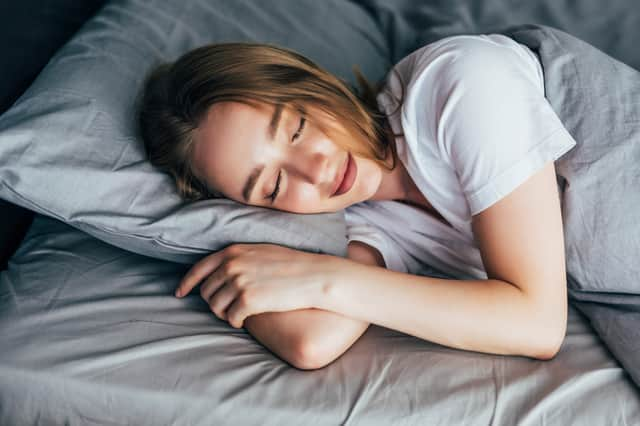Bed expert reveals the best sounds for a great night’s sleep: Tips to beat sleep deprivation


One way to take back control is to harness the power of Sleep Sounds – a natural and effective way to foster the perfect atmosphere for sleep. But first, we need to understand…
How does sound impact sleep?
Some sounds have the ability to evoke a calming response, reduce stress, and promote a state of relaxation, making them great bedtime buddies. Here’s how.
● Neurological responses, stress reduction, and cortisol regulation: When the brain is exposed to calming sounds, its limbic system is engaged. This activation triggers the release of neurotransmitters like serotonin and dopamine, which promote a sense of tranquillity and relaxation. Some sleep sounds have also been linked to minimising stress as they reduce cortisol, the stress hormone, by responding positively to calming sounds.
● Influence on brainwave patterns: binaural beats or rhythmic nature sounds may also influence brainwave patterns. As an example, delta waves, associated with deep sleep, can be encouraged by some sleep sounds, contributing to a more restorative sleep experience.
● Triggering the relaxation response: the relaxation response is a state of deep rest that minimises the “fight or flight” response. Some sleep sounds promote physiological changes, including a slowed heart rate, decreased muscle tension, and enhanced overall well-being.


What are the best sleep sounds to get better sleep?
Now you know why sleep sounds improve sleep, which ones are the best? We spoke with Ryan Kerr, a sleep expert from mattress retailer John Ryan By Design.
Ryan said: "Creating the ideal sleep environment isn't just about pillows, blankets, and mattresses - as much as we wish it were! Instead, it's about creating the best environment for sleep, and that includes using sleep-inducing sounds.”
According to Ryan, these are five of the best sounds you can play to help you drift off and get a great night’s sleep.
1. Pink noise: Pink noise is a consistent sound, like white noise, but it has more power in the lower frequencies. This makes it a deeper and more balanced sound, offering a comforting auditory experience. Pink noise occurs naturally and includes sounds like falling rain or ocean waves.
2. Binaural beats: Binaural beats involve playing slightly different frequencies in each ear, creating an auditory illusion known as a beat. These beats have been associated with changes in brainwave patterns, potentially aiding in relaxation and promoting sleep and relaxation.
3. ASMR (autonomous sensory meridian response): ASMR involves the use of specific auditory stimuli, such as whispering, tapping, or crinkling sounds. The sounds induce a tingling sensation and a feeling of calm which are thought to result from the release of endorphins, the body’s natural feel-good chemicals.
4. Soft music: Slow-tempo instrumental music can create a calming ambience for bedtime. Classical music is particularly soothing, with pieces like Debussy’s “Clair de Lune” or Satie’s “Gymnopédie No. 1” being recommended for bedtime.
5. Tibetan Singing Bowls: The resonant tones of Tibetan singing bowls are renowned for their therapeutic effects. The vibrations produced by these bowls can induce a sense of calm, making them an excellent choice for enhancing relaxation before sleep.
Which of these are you going to try tonight?